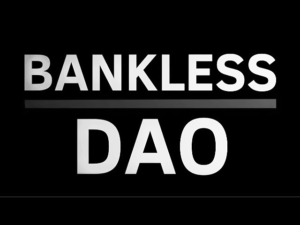36: The IRL Gap Between Traditional Cities & Digital Startup Cities // Angelo Alessio

Background on Build_Cities:
Angelo is the Founder and Protocol Architect at build_cities. The build_cities mission is to build, accommodate, and invest in a collective of innovators vested in the best interests of their respective localities. They are starting with a decentralized network of coworking spaces organized via DAO (Decentralized Autonomous Organization) frameworks and laying the foundation for a new era of startup cities.
So, what exactly is build_cities doing? They are creating the infrastructure to create, finance, and govern startup cities around the globe starting with fostering Type 1 startup cities with digital-first tools. While some of these efforts will naturally start to overlap with Type 2 & 3 startup cities, the core of their efforts is focused on unlocking innovation in every corner of the globe from the bottom up.
Time-Stamped Show Notes:
- 3:09 Build Cities is all about building protocols for startup cities. Angelo offers a more detailed explanation of what Build Cities is all about.
- 4:11 The different types of startup cities, according to Angelo.
- 4:56 One of the biggest inspirations for Build Cities is from Brad Feld and his book Startup Communities.
- 6:48 Build Cities firmly believes that in order for a startup city to be successful, there has to be a foundation, which consists of the local neighborhood, infrastructure, and brick & mortar.
- 8:13 Angelo fully agrees with the belief and thesis of Joni Baboci from Layer, who is a previous guest here at CityDAO podcast.
- 10:38 Build Cities is leaning more on leveraging technologies such as blockchain and crypto in order to build physical startup cities.
- 12:59 Angelo provides an example on how to use new technologies to change the traditional tax system.
- 14:05 They have already built a product that would allow people to stake physical real estate on a network and be able to access it. They are planning to release this product at a later date.
- 16:40 Each city chapter will essentially become its own DAO.
- 17:58 Angelo talks about the protocols they are building for startup cities.
- 19:12 Build Cities has a core team consisting of 6 members. As for their product, it already has 200 networks on board.
- 22:43 For Angelo, the best example of protocols is capital flows and taxes. He believes that if there is a greater level of transparency in the tax system, the people will have a better connection with their city.
- 24:04 Doing a pilot grant in gitcoin, Angelo and his team were able to help the developers in Lagos, Nigeria.
- 26:53 In the next decade, Angelo believes that there will be thousands of open-source cities.
- 28:21 Angelo poses a question about what Eric thinks the definition of success looks like for a network city.
- 28:39 Making it through this crypto winter with an intact and functioning community is what constitutes as the first success of a network state venture.
- 30:23 Eric continues on his view of what success looks like for a network city.
- 32:42 Angelo discusses what success currently looks like for Build Cities.
Key Points from this Interview:
- “I would say the foundation, the main prerequisite for a network state or any country is still physical land.”
- “I think the clearest example of that, when we’re talking about protocol, is capital flow. Let’s open the black box of taxes. We’re paying so much, we should know exactly where each dollar goes. And that level of transparency, and knowing where your funds are going to be is going to tie you so much more to your city.”
Resources Mentioned:
- Linkedin: joinbuild
- Twitter: @joinbuild_
- Website: buildcities.network



